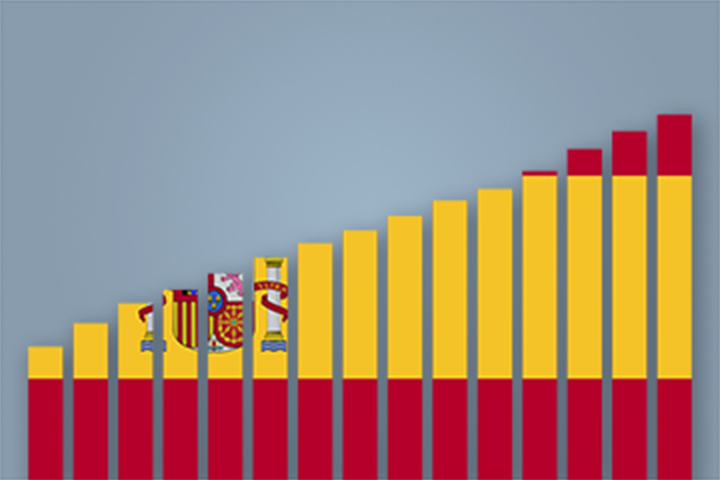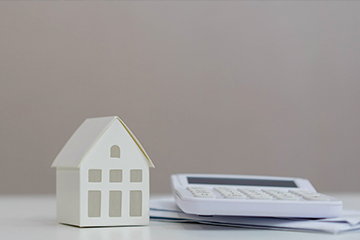Borrowing for a second home: what are your options?

Keytrade Bank
keytradebank.be
March 19, 2024
(updated June 26, 2025)
3 minutes to read
You’ve dreamed for so long of a place of your own by the sea to go listen to the waves regularly. Or you've set your sights on a lucrative apartment in the heart of the city, ideal for renting out. Great ideas! However, right now you still have a loan for your own home. Can you simply borrow again for a second home? Is it financially possible? And what about the tax situation? Here's an overview.
How can you borrow money for a second home?
If you still have a loan running, there are two potentially attractive financing options available to you:
- You can take out a completely new mortgage loan on top of your current loan
- You can re-borrow the equity under your existing loan
1. A second, completely new mortgage loan
In the same way as when financing a first family home, you can opt for a new mortgage loan for a second home or an investment property. The application process itself is not very different to that for a first mortgage loan. For example, you need to involve a solicitor again and pay registration fees.
However, a number of varied conditions will be considered if you want to take out an additional mortgage:
Down payment: a second mortgage loan may require a higher deposit from you than a first loan, to compensate the increased risk for the bank.
Income stability and level: are you financially stable enough to repay two mortgage loans at the same time?
Existing debt commitments: your existing debt commitments, including your first mortgage loan, are evaluated in more detail, to establish your overall debt ratio.
Rental income: for investment properties, banks will also look at the potential rental income that the property can generate. However, it is unlikely that 100% of these revenues will be included in the calculation. As a landlord, you are liable for certain (sometimes unforeseen) costs such as maintenance, new investments, withholding tax, etc.
Property value: the bank will take a very close and careful look at the value of the second property, and the ratio of the loan to that value.
Use of the property: will the property be used for rental, as a holiday home, etc.? The usage can also impact the assessment and terms of the loan.
Please note: when you switch from one to two mortgage loans, a number of game-changing points will logically come into play. Both for the bank and for you as customer:
- Having two simultaneous loans increases your level of financial risk for the bank, and may therefore lead to higher total costs.
- Managing two separate loans can lead to more complex administration and repayment processes. Work with a bank that is able to assist you properly with this.
- You need to provide a second form of collateral.

Just like when you finance your first family home, you can opt for a new mortgage loan for a second home or investment property. But that’s not the only option you have.
2. Releasing equity through your existing mortgage loan
You may already be quite a way along with the repayment of your first mortgage loan. In that case, an equity release may be an attractive approach.
What this means in practice is that you re-borrow the capital you already repaid on your first loan to finance your new loan at the interest rate that applies now. For this approach, you do not have to submit new guarantees via the solicitor and you save on the deed costs.
On the other hand, there is the risk that your first home will also serve as collateral for your second loan. If you are unable to repay your loan, the bank can put your home up for sale.
Which is the most logical choice for you?
The arrangement on which you ultimately decide to agree with your banker will depend on several factors:
- How much do you actually need?
- What financial guarantees can you offer the bank?
- What are the terms and conditions of your current mortgage loan?
How much can you borrow for a second home?
How much you will ultimately be able to borrow from the bank will be determined, among other things, by your income, existing debts and the value of the property in question.
Banks will scrutinise your financial situation in detail in order to assess your repayment capacity as closely as possible. In general, the banks are indeed willing to lend for a second home, but the conditions may be stricter than those for a first mortgage.
Are there any tax benefits attached to a second home?
Sadly, no. Since 1 January 2024, the capital repayments and the premiums for loan balance insurance relating to a mortgage loan for a second home are no longer tax deductible. However, there is still a tax reduction available on the interest.
What are your chances of success?
In a nutshell, how quickly you will be able to borrow for a second home is anything but a no-brainer. Both you and your bank need to make a carefully considered decision with a view to a secure future.
How well are you doing today? How good are your chances of getting the green light straight away for a mortgage loan for a second home? We can already give you a very good estimate. Run the Keyhome simulation now and take the first important step towards your new home.


